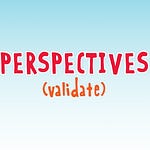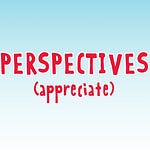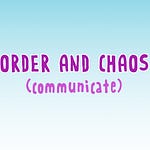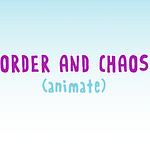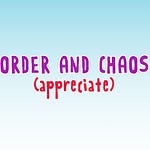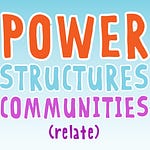Abbie: Hello and welcome to the CosmoParenting Podcast brought to you by the CMM Institute for Personal and Social Evolution. In this space, we invite you to see yourself as someone who is curious about and actively participating in creating your own meaning around parenting.
This is our ‘Validate’ episode, where in the second episode of each month, we hear a parenting story with the hope that sharing the first-hand experiences of others who are parenting can make you feel seen and validated in your own experiences.
Let's begin.
*music*
Abbie: Today, I am joined by Sikowis. Hello, Sikowis. Thank you so much for joining me.
Sikowis: Thank you for having me here again. I really enjoyed our last session together, and I'm looking forward to this one.
Abbie: Yeah, it was great to speak to you on the Stories Lived. Stories Told. podcast (listen to episode here), and here we are on CosmoParenting.
This month, we are talking about power. And I'm really glad to have you join me for this conversation. The way that we have kind of defined power in the first episode of this month is just to say that power is the ability to influence and power can take many forms. So Sikowis, with that in mind, please tell me your story about parenting and power.
Sikowis: Wow, that is such a huge, overarching topic.
Abbie: Yeah.
Sikowis: But I was definitely interested when you sent me the list of different topics to talk about- power stood out to me the most. And I think it's because I'm Indigenous, and I'm a woman, and it is very important for folks that live this life to bring back power into the matriarchy, into the feminine, into Indigenous lives.
And the reason that is so important, obviously, is because of oppression, colonial-capitalism, the toxic patriarchy, all these reasons.
And as a mother, of course, that is really important to me with how I raise my children. I want to talk a little bit about building power in Indigenous communities first, before I talk about my kids. For me, building power means bringing the community together. It means healing justice. It means economic justice. You know, it means overcoming issues.
And the biggest thing is that people, even though they might not have access to the things they need access to, even though that they're still struggling, that they feel that they are powerful enough to make changes, that they feel that they're powerful enough to stand for what is right and to pursue what it is that can make life better for themselves and their communities.
I bring my kids up like that very much. Both my children- my son is 15 and my daughter is 9- come with me to many of my events that Great Plains Action Society puts on and also other events happening in the community, both cultural and educational and even protests, because I want them to understand that in order for this world to be a good place, it takes a lot of work and it takes a lot of power manifestation.
People have to feel like they can make change. And that comes with power building, right? And again, you do that by getting together with community, being tenacious about your culture, and standing up for what is right. And so they see that happening. And I'm actually proud to say that both my children are very mature about issues that are happening in the world.
Of course, I don't try to burden kids too young of an age. I try to teach them as they grow. I'm not just burdening children that can't understand what's going on. But a lot of it has to do with being proud of being Indigenous as well. They you now come to powwows, they came with me to a buffalo harvest recently, they made their own ribbon skirts and ribbon shirts not too long ago and and walked in an indigenous fashion show, they understand the importance of ceremony they both had their first sweats in the past few years. My daughter had her first sweat actually this past summer, so it was a really big deal and it was really scary for her. Actually, she was nervous from the very beginning and it wasn't until the very end that she started to cry because that's when it gets really hot at the very end and it's very dark, but you know, I sat beside her I held her and she made it through and I can't tell you how incredibly proud I was of her and how proud I was to see this young Indigenous girl, you know, at that age, like, just be so proud of herself as well and to come into, you know, a sense of power about what she can and cannot do. That fuels myself and my children to be a part of Indigenous culture and ceremony, to show up for people and stand up for what's right. That is definitely power building for me as a parent.
Abbie: I love this language of building power and you're offering something really important that I think hasn't been a part of the conversation we're having yet. And I'll just acknowledge my own bias that the way I've been thinking about power is like the individual power that each of us have.
And I think that makes sense that where I'm coming from is from this communication perspective, which feels very much like ‘you can control yourself.’ And so I think about in an interpersonal sense, I'm thinking about, okay, what's within my power to control here? How can I show up?
And that's important to think about. But just as important is what you're talking about is this power we have when we come together within our communities. And that is like a much larger, different kind of power that's so important. And what it really sounds like to me is that you're really engaging your kids in the experience of inviting them to recognize the power that, again, both they themselves have as individual in these individual situations and also these community events.
Sikowis: Yeah. Power is not a bad thing. Power is a neutral thing. It's a thing. And it can be wielded in many different ways. It's how you approach power and how you use power that's important. And I think that we have problems with people like Elon Musk and Trump right now because they've never understood community.
They've never been brought up to understand how power is wielded in community with people that you love and care about and how it's to be used as a form of support and love, not as a form of control and fascism.
Abbie: Yeah, yeah. I think the perspective I have on that is that it's- what we need is a kind of power that is more relational than putting us, you know, leadership, not being one person over, you know, lording everybody else, but really being in relationship with each other and working together.
Sikowis: That's the colonial-capitalist perspective. And my kids are not going to be brought up like that.
Abbie: Yeah, yeah. think that's really important. And Sikowis, I really appreciate you bringing the perspective that you have to this conversation around power today.
Sikowis: Thank you.
Abbie: Thank you so much. And to everyone listening, thank you for joining us too. Don't forget to check out www.cosmoactivities.com for all our other resources in this series. And be sure to comment on this podcast episode on the CosmoParenting Substack. We love to be in dialogue with you and we have so much to learn from each other.
We're so grateful to be on this journey with you and we will see you next week to explore some parenting best practices.
*music*




